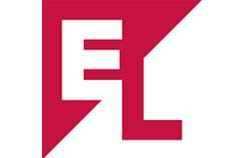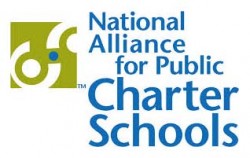Parent’s Bill of Rights
Parent’s Bill of Rights
Parents should be aware that:
- A student’s personally identifiable information cannot be sold or released for any commercial purposes.
2. Parents have the right to inspect and review the complete contents of their child’s education record.
3. State and federal laws protect the confidentiality of personally identifiable information, and safeguards associated with industry standards and best practices, including but not limited to, encryption, firewalls, and password protection, must be in place when data is stored or transferred.
4. A complete list of all student data elements collected by the State is available for public review online or by writing to the Office of Information & Reporting Services, New York State Education Department, Room 863 EBA, 89 Washington Avenue, New York 12234.
5. Parents have the right to have complaints about possible breaches of student data addressed. Complaints should be directed as follows, using this form:
Chief Privacy Officer
New York State Education Department
89 Washington Avenue
Albany, New York 12234
privacy@nysed.gov
If Niagara Charter School enters into a third party contract in which the service
provider receives student data or teacher or principal data in order to provide a needed service for the School, supplemental information shall be developed and provided to parents that states:
-
- The exclusive purposes for which the student data or teacher or principal data will be used;
- How the third-party contractor will ensure that the subcontractors, persons or entities that the third party contractor will share the student data or teacher or principal data with, if any, will abide by data
protection and security requirements; - When the agreement expires and what happens to the student data or teacher or principal data upon expiration of the agreement;
- If and how a parent, student, eligible student, teacher or principal may challenge the accuracy of the student data or teacher or principal data that is collected; and
- Where the student data or teacher or principal data will be stored and the security protections taken to ensure such data will be protected, including whether such data will be encrypted.
FERPA
Niagara Charter School’s procedures for the confidentiality of student records are consistent with federal statutes, including the Family Educational Rights and Privacy Act (FERPA). The parents, those acting in a parental relationship, or eligible students of the Niagara Charter School are hereby notified of the Family Educational Rights and Privacy Act (FERPA) and Niagara Charter School Policy
The School will comply with the provisions of the Family Educational Rights and Privacy Act of 1974 (FERPA). Under its provisions, parents/guardians and noncustodial parent(s), whose rights are not limited by court order or formal agreement, have a right to inspect and review any and all education records maintained by the School. All appropriate staff will be trained in such requirements, and the School’s Special Education Coordinator will be responsible for ensuring the confidentiality of personally identifiable information within student records.
Education Records
The term “education records” is defined as all records, files, documents and other materials containing information directly related to a student; and maintained by the education agency or institution, or by a person acting for that agency or institution. This includes all records regardless of medium, including, but not limited to, handwriting, videotape or audiotape, electronic or computer files, film, print, microfilm, and microfiche.
In addition, all records pertaining to services provided under the Individuals with Disabilities Education Act (IDEA) are considered “education records” under FERPA and they are subject to the confidentiality provisions of both Acts.
However, personal notes made by teachers or other staff are not considered education records if they are:
- Kept in the sole possession of the maker;
- Not accessible or revealed to any other person except a temporary substitute; and
- Used only as a memory aid.
Additionally FERPA does not prohibit a school official from disclosing information about a student if the information is obtained through the school official’s personal knowledge or observation and not from the student’s education records.
Records created and maintained by a law enforcement unit for law enforcement purposes are also excluded.
Access to Student Records
Administrative regulations and procedures will comply with the provisions of federal law relating to the availability of student records. The purpose of these regulations and procedures is to make available to the parents/guardians of students and noncustodial parent(s) whose rights are not limited by court order or formal agreement, student records, and files on students, and to ensure the confidentiality of these records with respect to third parties. In accordance with FERPA, parents will be allowed to inspect and review all of their student’s educational records maintained by the School. Upon receipt of such a request, the School will adhere to the requirements of the Freedom of Information Law. In any event, the School will comply with such a request for access within a reasonable period of time, but in no case more than 45 days after it has received the request.
Under FERPA, unless otherwise exempted in accordance with law and regulation, the School may release personally identifiable information (PII) contained in student education records only if it has received a “signed and dated written consent” from a parent or eligible student. Signed and dated written consent may include a record and signature in electronic form provided that the signature:
- Identifies and authenticates a particular person as the source of the electronic consent; and
- Indicates the person’s approval of the information contained in the electronic consent.
Exceptions
Without the consent of a parent or eligible student, the school may release a student’s information or records when it is:
- Directory Information and Limited Directory Information: Directory information is information contained in an education record of a student that would not generally be considered harmful or an invasion of privacy if disclosed. Limited Directory Information Disclosure means that the School may limit disclosure of its designated directory information to specific parties, for specific purposes, or both. The intent is to allow schools the option to implement policies that allow for the disclosure of student information for uses such as yearbooks, honor roll lists, graduation programs and play bills, but restrict disclosure for more potentially dangerous purposes. The School will limit disclosure of its designated directory information as otherwise specified in its public notice to parents of students in attendance and eligible students in attendance.
Opt Out – If you do not want the School to disclose directory information from your child’s educational records without your prior written consent, you must notify the Chief Academic Officer in writing by September 30 for the current school year. This notice must be sent to the Chief Academic Officer on a yearly basis.
- To School Officials who have a Legitimate Educational Interest: To other school officials, including teachers, within the educational agency or institution whom the school has determined to have legitimate educational interests. An educational interest includes the behavior of a student and disciplinary action taken against the student for conduct that posed a significant risk to the safety or well-being of the student, other students or other members of the school community. A school official has a legitimate educational interest if the official needs to review an education record in order to fulfill his/her professional responsibility.
- To Another Educational Institution: The School may disclose any and all educational records, including disciplinary records and records that were created as a result of a student receiving special education services under Part B of IDEA, to another school or postsecondary institution at which the student seeks or intends to enroll, or after the student has enrolled or transferred, so long as the disclosure is for purposes related to the student’s enrollment or transfer. Parental consent is not required for transferring education records if the School’s annual FERPA notification indicates that these disclosures may be made. In the absence of information about disclosures in the annual FERPA notification, school officials must make a reasonable attempt to notify the parent about the disclosure, unless the parent initiated the disclosure. Additionally, upon request, the school will provide a copy of the information disclosed and an opportunity for a hearing.
- For Health and Safety Emergency Reasons: Schools must balance the need to protect students’ PII with the need to address issues of school safety and emergency preparedness. Under FERPA, if an educational agency or institution determines that there is an articulable and significant threat to the health or safety of a student or other individuals, it may disclose information from education records, without consent, to any person whose knowledge of the information is necessary to protect the health and safety of the student or other individuals during the period of the health or safety emergency. Schools may release information from records to appropriate parties including, but not limited to, parents, law enforcement officials and medical personnel. A school’s determination that there is an articulable and significant threat to the health or safety of a student or other individuals will be based upon a totality of the circumstances, including the information available, at the time the determination is made. The School must record the articulable and significant threat that formed the basis for the disclosure and maintain this record for as long as the student’s education records are maintained.
- To Juvenile Justice Systems: Information may be disclosed to state and local officials or authorities to whom information is specifically allowed to be reported or disclosed by a state statute that concerns the juvenile justice system and the system’s ability to effectively serve, prior to adjudication, the student whose records were released. In these cases the official or authority must certify in writing that the information will not be disclosed to any other party except as provided under law without prior written consent.
- To Foster Care Agencies: A school may release records to an agency caseworker or other representative of a State or local child welfare agency, who has the right to access a student’s case plan, when the agency or organization is legally responsible, for the care and protection of the student. This does not give a child welfare agency the right to look into any non-foster care student’s records, without parental consent, when there has been a mere allegation of abuse or neglect, absent an order or subpoena.
- Pursuant to a Subpoena or Court Order: When the School receives a subpoena or court order for the release of records it will make a reasonable effort to notify the parent/guardian or eligible student of the order or subpoena in advance of compliance. This allows the parent/guardian or eligible student to seek protective action against the subpoena or order before the release of the records. Schools may disclose a student’s records without first notifying parents/guardians or eligible students if the disclosure is:
- Based on a subpoena in which the court orders, for good cause shown, not to reveal to any person the existence or contents of the subpoena or any information furnished pursuant to the subpoena;
- In accordance with judicial order in cases where the parents are a party to a court proceeding involving child abuse or neglect or dependency matters, and the order is issued in the context of that proceeding; or
- Made to a court (with or without an order or subpoena) when a School is involved in a legal action against a parent or student and the records are relevant to the matter.
- To Accrediting Organizations: Disclosure of a student’s records may be made to an organization in which that student seeks accreditation, in order to carry out their accrediting function.
- For Audit/Evaluation Purposes: The audit or evaluation exception allows for the disclosure of PII from education records without consent to authorized representatives of the Comptroller General of the U.S., the Attorney General, the Secretary of Education, federal, state or local educational authorities. Under this exception, PII from education records must be used to audit or evaluate a federal or state supported education program, or to enforce or comply with federal legal requirements that relate to those education programs . The School may, occasionally, disclose PII from education records without consent to authorized representatives of the entities listed above. The School may also designate its own authorized representative who may access PII without consent in connection with an audit or evaluation of an education program within the School.
10.For Conducting Studies: This exception allows for the disclosure of PII from education records without consent to organizations conducting studies for, or on behalf of, schools, school districts or postsecondary institutions. Studies can be for the purpose of developing, validating, or administering predictive tests; administering student aid programs; or improving instruction. The School may disclose PII from education records without consent to these organizations conducting studies for the School, in accordance with its obligations under FERPA.
In addition, other entities outside of the School may, occasionally, disclose PII from education records that the School has previously shared with that entity, to organizations conducting studies on behalf of the School. For example, a State Education Agency (SEA) may disclose PII from education records provided by the School without consent to an organization for the purpose of conducting a study that compares program outcomes across schools to further assess the effectiveness of these programs with the goal of providing the best instruction.
Challenge to Student Records
Parents/guardians of a student under the age of 18 will have an opportunity for a hearing to challenge the content of the school records and to ensure that the records are not inaccurate, misleading, or otherwise in violation of the privacy of students, and to provide an opportunity for the correction or deletion of any inaccurate, misleading, or otherwise inappropriate data.
Release of Information to the Noncustodial Parent
The School may presume that the noncustodial parent has the authority to request information concerning his/her child and release information upon request. If the custodial parent wishes to limit the noncustodial parent’s access to the records, it his/her responsibility to obtain and present to the school a legally binding instrument that prevents the release of information related to the child.
Confidentiality
All files required by law to be kept confidential shall be kept under lock, in a place and manner that restricts access to only those individuals who are authorized to view these records. More specifically, special education records shall be kept under a locked file cabinet under the supervision of the special education teacher in his or her secure office who shall maintain a list of those staff allowed to access specific files, including the respective student’s teacher and parent. A sign-out sheet shall be maintained by the teacher for all records to keep track of their location at all times. Additionally, in relation to FERPA and the Special Education Coordinator, the position must ensure that all teachers have copies of IEP’s in locked cabinets as well as providing them to the students’ teachers and ensuring the IEP’ s are kept by the teachers in locked cabinets. The SPED Coordinator and Administrator will oversee and inform the staff in the maintenance and confidentiality of personally identifiable information in student records.
The coordinator will ensure the school is in compliance with FERPA in regard to special education records. All teachers must be NCLB highly qualified per federal mandate and only persons who are highly qualified may teach in Niagara Charter School.
A student’s parent, those acting in a parental relationship, or the eligible student have the right to file a complaint with the U.S. Department of Education concerning alleged failures by the School to comply with the requirements of FERPA. The name and address of the Office that administers FERPA are: Family Policy Compliance Office, U.S. Department of Education, 400 Maryland Ave., SW, Washington, DC 20202-4605.
If either a student’s parent, those acting in a parental relationship, or the eligible student desire to obtain copies of the policy pertaining to student records, notification should be presented to the Chief Academic Officer, 2077 Lockport Road, Niagara Falls, NY 14304.








